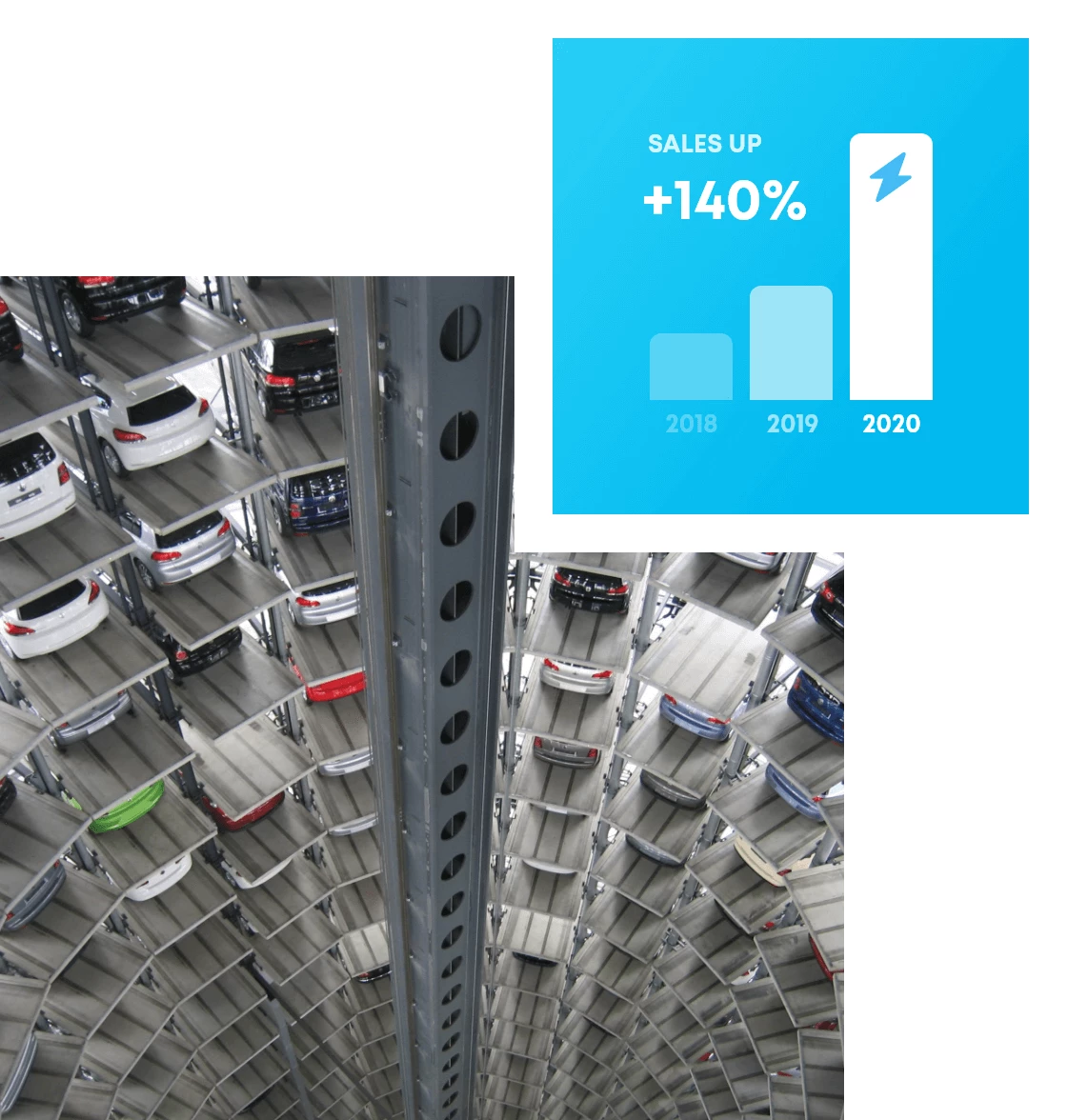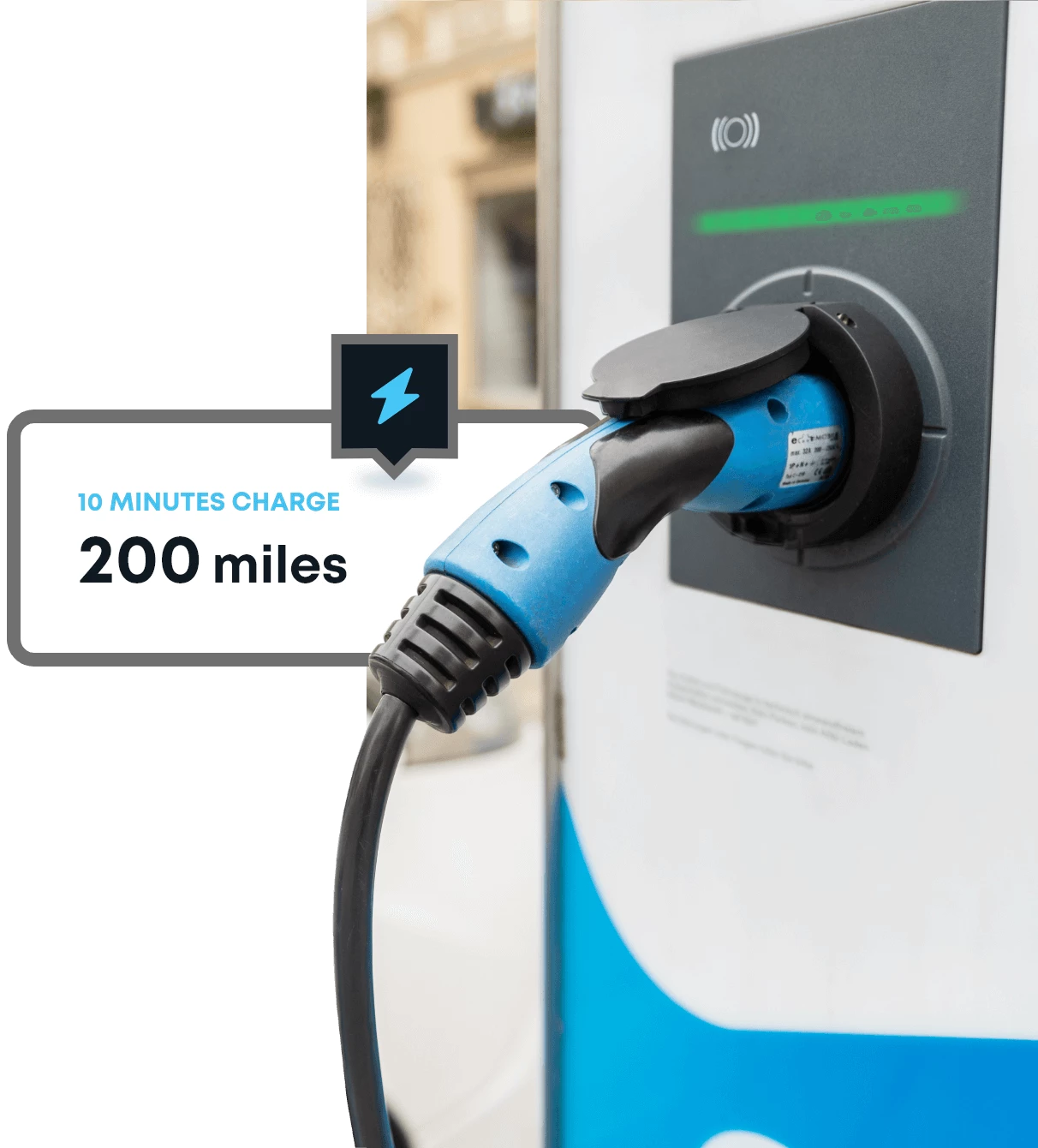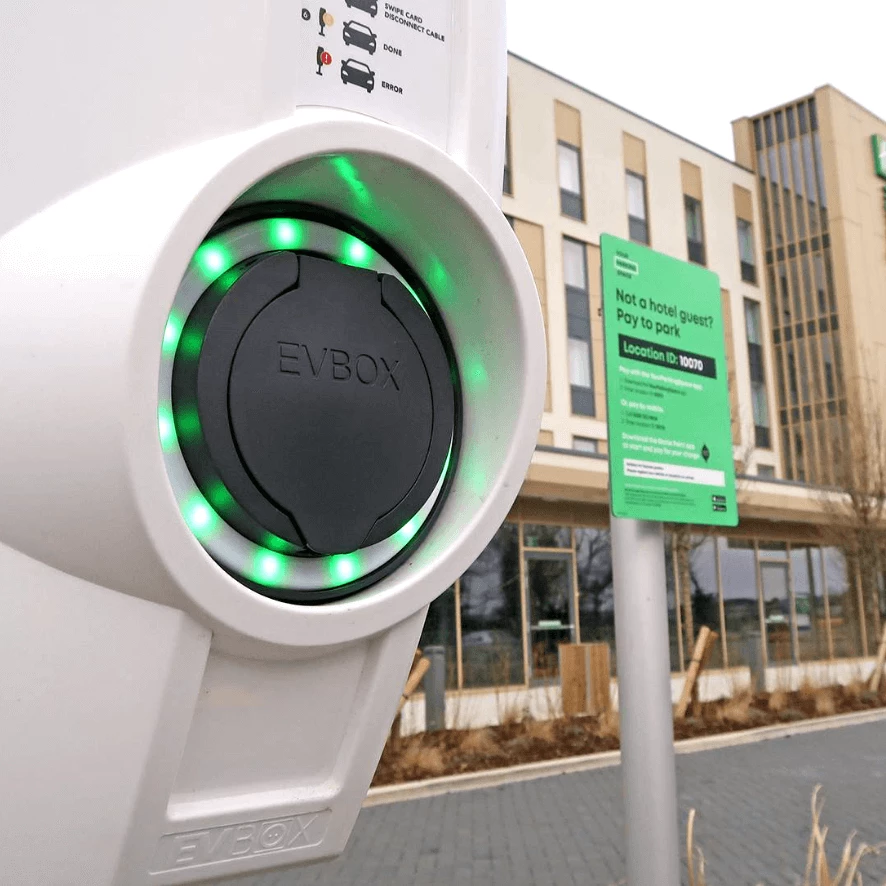
Mobility:
Charging the rEVolution
Electric vehicles (EVs) are big news. The market has grown rapidly over the past few years, shooting up from less than 30,000 plug-in vehicles on UK roads by the start of 2016, to more than 175,000 EVs sold by the start of 2021.
It’s a trend that is still accelerating, and with government legislation coming into force in 2030 that will ban the sale of new petrol and diesel cars in 2030 - and the ban on all but purely electrically-driven cars by 2035 - it is clear that the need for EV charging infrastructure is not only essential but required quickly.
The UK isn’t in bad shape when it comes to EV charging infrastructure, and is in fact well placed compared to many European neighbours. However, the current state of UK EV charging is merely keeping pace with the sales of electric vehicles. As these grow, so too must the infrastructure to support them. This is where car parking becomes more important than ever before, and how businesses can diversify to meet the demands that electric vehicle drivers will place on them.
Request callback

Cables, plugging-in, and EV limitations
Despite the increased choice, longer ranges and shorter charging times, there are still hurdles for EV drivers - and thus infrastructure - to overcome. One huge challenge is what do those drivers that have no access to off-street parking at home do to charge their car? Most current EV drivers plug their car in when they get home in the evening and wake the next day to a fully-charged vehicle. If you can’t plug in a car in a similar way as you put a mobile phone on charge at night, it takes away some of the convenience.
Despite this, there are ways for drivers - with off-street residential parking or without - to run an electric vehicle easily; it all comes down to parking. Many car drivers consider the fact that it takes at least half an hour to charge an EV from high-powered chargers on a long trip as being an inconvenience. But if someone stops at a service station in a petrol or diesel car, by the time they have used facilities, grabbed a bite to eat or a cup of coffee, and generally stretched their legs, many will have ‘lost’ 15-20 minutes easily.
An EV charging during this time is adding miles back into the car quickly. Plug in to the fastest charging points in the fastest charging cars and more than 200 miles of range can be added in 10 minutes. Essential though it is, this isn’t the type of EV charging that will be used most. Instead, the key to unlocking EV infrastructure is to offer charging solutions that mirror what drivers do at home - plug in and forget about it for a few hours.

Despite the increased choice, longer ranges and shorter charging times, there are still hurdles for EV drivers - and thus infrastructure - to overcome. One huge challenge is what do those drivers that have no access to off-street parking at home do to charge their car? Most current EV drivers plug their car in when they get home in the evening and wake the next day to a fully-charged vehicle. If you can’t plug in a car in a similar way as you put a mobile phone on charge at night, it takes away some of the convenience.
Despite this, there are ways for drivers - with off-street residential parking or without - to run an electric vehicle easily; it all comes down to parking. Many car drivers consider the fact that it takes at least half an hour to charge an EV from high-powered chargers on a long trip as being an inconvenience. But if someone stops at a service station in a petrol or diesel car, by the time they have used facilities, grabbed a bite to eat or a cup of coffee, and generally stretched their legs, many will have ‘lost’ 15-20 minutes easily.
An EV charging during this time is adding miles back into the car quickly. Plug in to the fastest charging points in the fastest charging cars and more than 200 miles of range can be added in 10 minutes. Essential though it is, this isn’t the type of EV charging that will be used most. Instead, the key to unlocking EV infrastructure is to offer charging solutions that mirror what drivers do at home - plug in and forget about it for a few hours.






This is where YourParkingSpace comes in. Not only do we offer you a respected, reliable, and comprehensive parking solution, we can also cover all charging needs - both those of your business and those of EV drivers.
Having partnered with EVBox - one of the world’s largest EV charging solution providers - YourParkingSpace can advise on how many charging points would be worthwhile installing, and of what type. Points can be used by any electric vehicle and will suit the requirements of space owners and drivers.
Get in touchSuccess! Your request has been sent.
Thank you for getting in touch. A member of our team will be in touch with you as soon as possible.